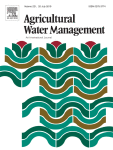
Negotiating participatory irrigation management in the Indian Himalayas
Subramanian, SaravananExternal Publications (2010)
in: Agricultural Water Management 97 (5), 651-658
DOI: https://doi.org/10.1016/j.agwat.2009.12.003
Information
Participatory irrigation management (PIM) reforms are implemented in India to facilitate farmers’ participation in irrigation management, through water user groups. Although thousands of user groups have been formed, a closer examination reveals inefficient water use, social power capture by rural elites in the name of participation, inadequate support from government institutions and government's inability to alleviate poverty. Currently, there is inadequate understanding of the linkage between socio-cultural, institutional and ecological factors affecting the outcome of the PIM reforms in India. Drawing from a case study village in the Shiwalik region of the Indian Himalayas, the paper identifies the role of diverse actors to exploit historic and ecological factors to derail the PIM reforms to frame water management problems. Using a combination of research methods and with application of a Bayesian network, the paper explores the inter-linkages between socio-cultural, institutional and ecological factors in derailing the PIM reforms. The paper reveals that PIM policies are never implemented, but integrated through the negotiation with other diverse policies and socio-cultural settings in (re)shaping water resources management. The analysis demonstrates that water is managed by multifaceted governance arrangements. In this governance arrangement state-centric or market-oriented or community-centered institutional arrangements are not superior to each other, rather they incrementally and cumulatively superimpose to (re)shape water resources management. In this process, integration represents a complex blend of statutory and socially embedded actors bringing with them diverse rules to negotiate, along with contextual factors. The findings call for laying out broad principles/ideologies in the policy statements of the statutory public actors that allow other actors to integrate, adapt and make policy processes dynamic. To facilitate this processes, the paper calls for statutory public actors to regulate water distribution, build capacity of actors and offer diverse forums for actors share and debate on the available information to take informed water-related decisions for a sustainable future.

